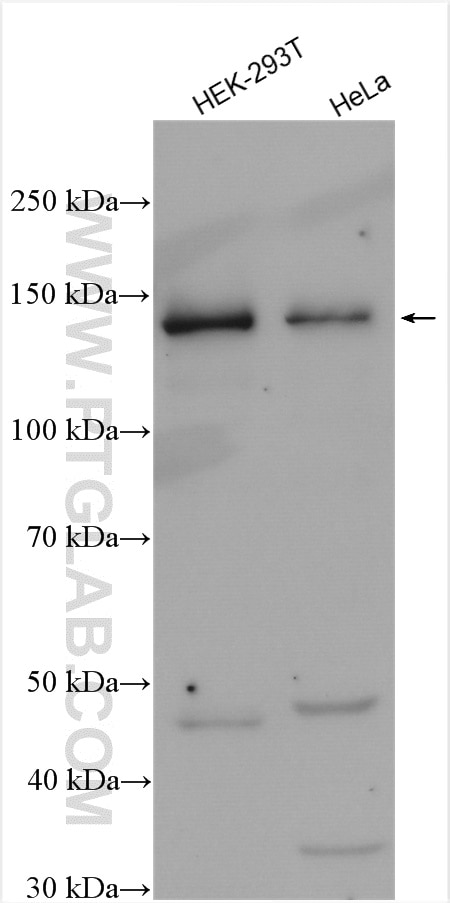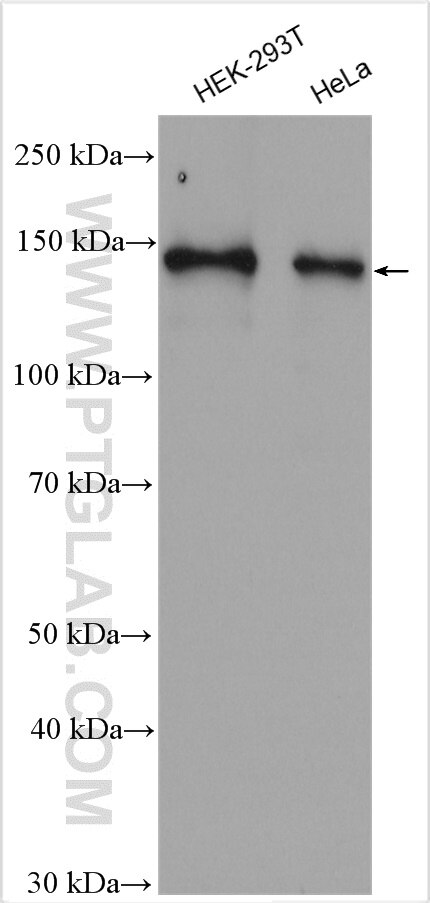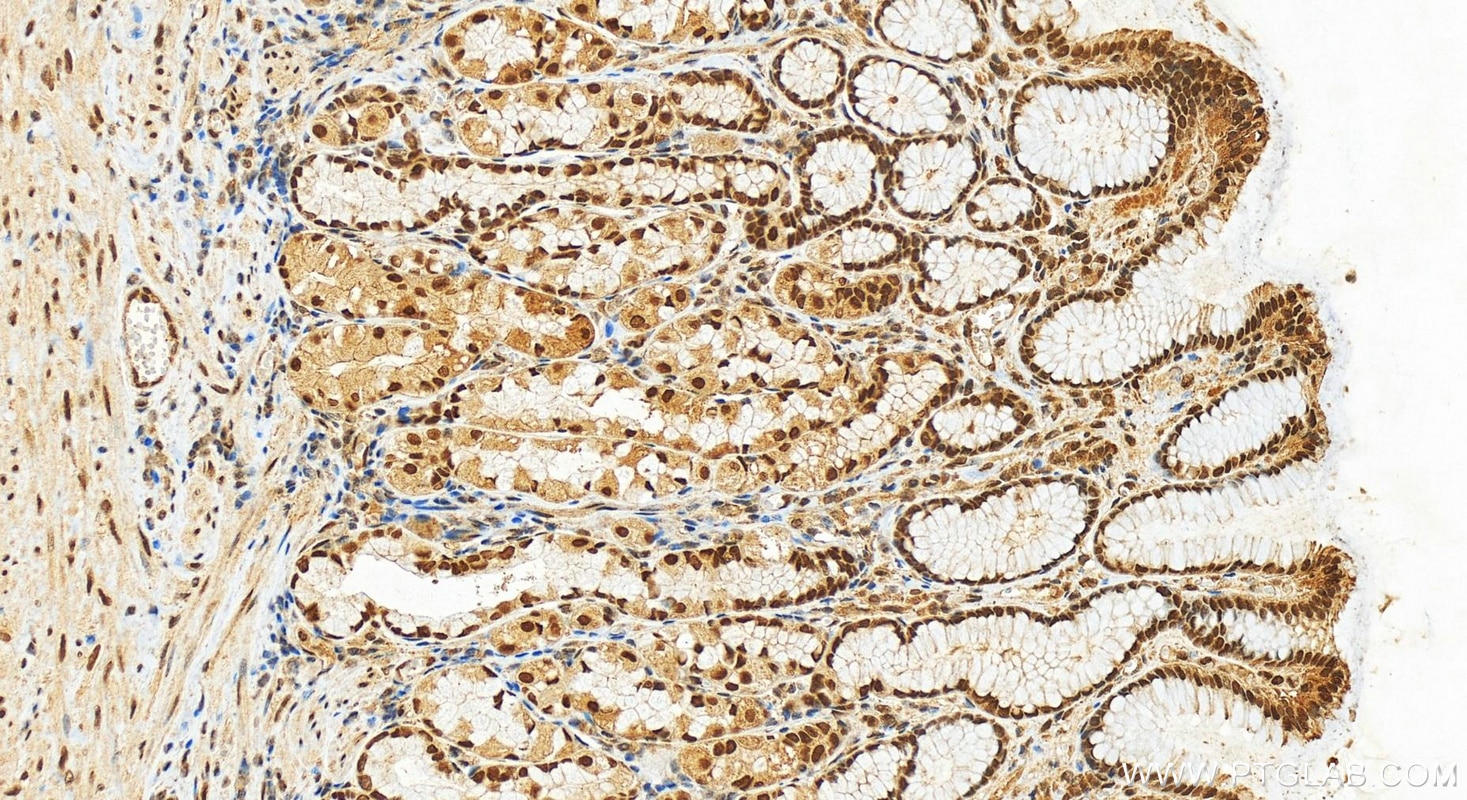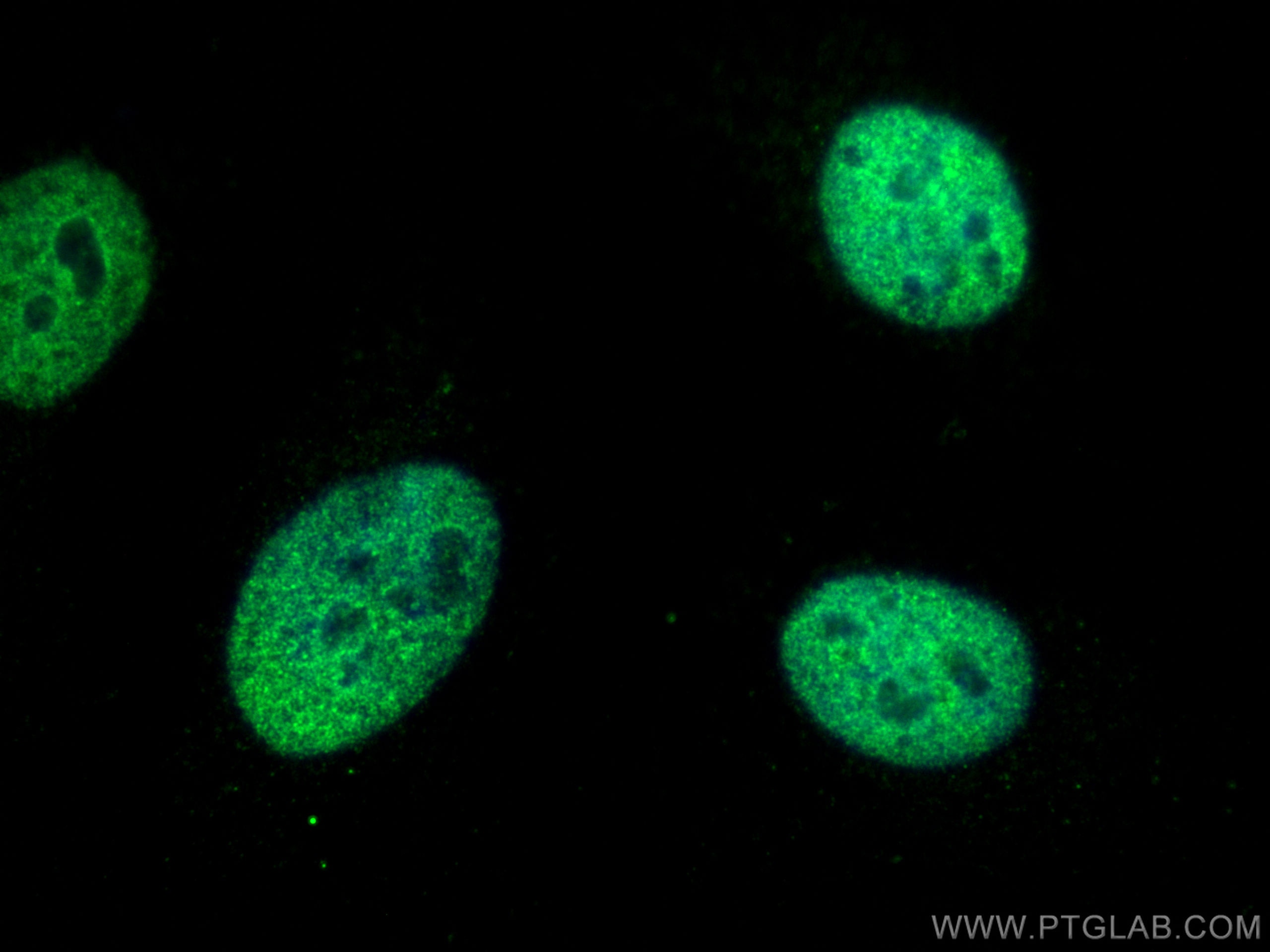Tested Applications
| Positive WB detected in | HEK-293T cells, HeLa cells |
| Positive IHC detected in | human stomach tissue Note: suggested antigen retrieval with TE buffer pH 9.0; (*) Alternatively, antigen retrieval may be performed with citrate buffer pH 6.0 |
| Positive IF/ICC detected in | HeLa cells |
Recommended dilution
| Application | Dilution |
|---|---|
| Western Blot (WB) | WB : 1:1000-1:8000 |
| Immunohistochemistry (IHC) | IHC : 1:200-1:800 |
| Immunofluorescence (IF)/ICC | IF/ICC : 1:300-1:1200 |
| It is recommended that this reagent should be titrated in each testing system to obtain optimal results. | |
| Sample-dependent, Check data in validation data gallery. | |
Published Applications
| WB | See 4 publications below |
| IHC | See 3 publications below |
| IF | See 2 publications below |
Product Information
17987-1-AP targets ADNP in WB, IHC, IF/ICC, ELISA applications and shows reactivity with human, mouse, rat samples.
| Tested Reactivity | human, mouse, rat |
| Cited Reactivity | human, mouse |
| Host / Isotype | Rabbit / IgG |
| Class | Polyclonal |
| Type | Antibody |
| Immunogen |
CatNo: Ag12414 Product name: Recombinant human ADNP protein Source: e coli.-derived, PGEX-4T Tag: GST Domain: 757-1102 aa of BC075794 Sequence: KGHEDDSYEARKSFLTKYFNKQPYPTRREIEKLAASLWLWKSDIASHFSNKRKKCVRDCEKYKPGVLLGFNMKELNKVKHEMDFDAEWLFENHDEKDSRVNASKTADKKLNLGKEDDSSSDSFENLEEESNESGSPFDPVFEVEPKISNDNPEEHVLKVIPEDASESEEKLDQKEDGSKYETIHLTEEPTKLMHNASDSEVDQDDVVEWKDGASPSESGPGSQQVSDFEDNTCEMKPGTWSDESSQSEDARSSKPAAKKKATMQGDREQLKWKNSSYGKVEGFWSKDQSQWKNASENDERLSNPQIEWQNSTIDSEDGEQFDNMTDGVAEPMHGSLAGVKLSSQQA Predict reactive species |
| Full Name | activity-dependent neuroprotector homeobox |
| Calculated Molecular Weight | 1102 aa, 123 kDa |
| Observed Molecular Weight | 135-145 kDa |
| GenBank Accession Number | BC075794 |
| Gene Symbol | ADNP |
| Gene ID (NCBI) | 23394 |
| RRID | AB_2222383 |
| Conjugate | Unconjugated |
| Form | Liquid |
| Purification Method | Antigen affinity purification |
| UNIPROT ID | Q9H2P0 |
| Storage Buffer | PBS with 0.02% sodium azide and 50% glycerol, pH 7.3. |
| Storage Conditions | Store at -20°C. Stable for one year after shipment. Aliquoting is unnecessary for -20oC storage. 20ul sizes contain 0.1% BSA. |
Protocols
| Product Specific Protocols | |
|---|---|
| IF protocol for ADNP antibody 17987-1-AP | Download protocol |
| IHC protocol for ADNP antibody 17987-1-AP | Download protocol |
| WB protocol for ADNP antibody 17987-1-AP | Download protocol |
| Standard Protocols | |
|---|---|
| Click here to view our Standard Protocols |
Publications
| Species | Application | Title |
|---|---|---|
Front Oncol ADNP Upregulation Promotes Bladder Cancer Cell Proliferation via the AKT Pathway. | ||
J Cancer ADNP prompts the cisplatin-resistance of bladder cancer via TGF-β-mediated epithelial-mesenchymal transition (EMT) pathway. | ||
Mol Autism Clinical impact and in vitro characterization of ADNP variants in pediatric patients | ||
Ren Fail Proteomics reveals the key transcription-related factors mediating obstructive nephropathy in pediatric patients and mice | ||
F1000Res A guide to selecting high-performing antibodies for ADNP (UniProt ID: Q9H2P0) for use in western blot, immunoprecipitation, and immunofluorescence | ||
Signal Transduct Target Ther Neuron-targeted caveolin-1 overexpression attenuates cognitive loss and pathological transcriptome changes in symptomatic Alzheimer's disease models |










